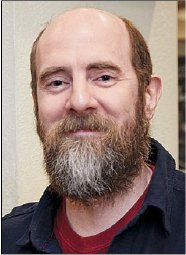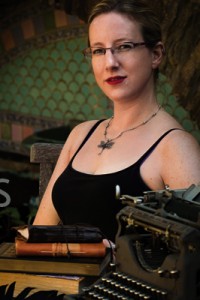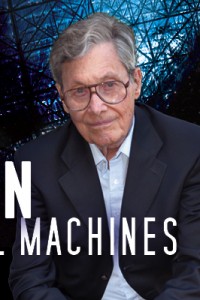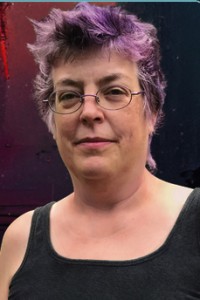Spotlight On: Scott H. Andrews, Beneath Ceaseless Skies
Scott H. Andrews is a writer, editor, chemistry lecturer, musician, woodworker, and connoisseur of stouts. His literary short fiction has won a $1,000 prize from the Briar Cliff Review, and his genre short fiction has appeared in Ann VanderMeer’s Weird Tales and in On Spec. He is editor-in-chief and publisher of the four-time Hugo Award-finalist fantasy e-zine Beneath Ceaseless Skies and its five-time Parsec Award finalist podcast. Scott lives in Virginia with his wife, two cats, 11 guitars, a dozen overflowing bookcases, and hundreds of beer bottles from all over the world.
I knew there were authors interested in that sort of fiction, slipstream writers who had grown up on epic fantasy or D&D, and I hoped there was a readership for it. Nine years and almost 500 stories later, I’m delighted that there is; that it’s being written and read and recognized as worthy genre literature. I loved Locus Online’s review that BCS has ‘‘revive(d) adventure fantasy, secondary-world fantasy, as a respectable subgenre of short fiction, raising it from the midden of disdain into which it had been cast by most of the rest of the field.’’ And ‘‘midden’’ is such a great historical fantasy word!
BCS focuses on ‘‘literary adventure fantasy.’’ How do you define that? Why focus on those sorts of stories in particular?
‘‘Literary adventure fantasy’’ is my tagline for literary or character-centered fantasy set in other worlds. Much secondary-world fantasy feels focused on the setting or the plot; I like a focus on the characters, for example using Realist approaches like close points-of-view or ambiguous endings – realism in worlds that aren’t real.
I love the line from Faulkner’s Nobel speech that the only thing worth writing about is the human heart in conflict with itself. I want to read about the human, or nonhuman, heart in conflict with itself, but in some awe-inspiring place that’s different from the primary world I see out my window. A great freedom of speculative fiction is that we can go to any place or reality as the setting for a story, to awe or emote or epitomize or allegorize or just because it’s cool. For me, character-centered stories set in such worlds can be just as profound and moving as the best literary short fiction, but also have that spec-fic awe, allegory, or fun.
What’s happening next? Are there any upcoming stories or projects you’re particularly excited about?
BCS will hold our annual e-book subscription drive this May. We had one last year with our 200th issue. We are a 501c3 nonprofit organization, funded by donations, but e-book subscriptions are a vital secondary revenue source for us. Our 200th podcast episode will release in July and our 500th story this fall. We’re also planning our fourth science-fantasy theme month in early 2018.
Is there anything else you’d like our readers to know about you or the work you do?
Every rejection BCS sends is personalized. As a neo-pro writer myself, it’s important to me that every rejection offer a comment why that story wasn’t right for us. It helps writers – we get many e-mails from writers who revised based on our comments and sold that story elsewhere – and it helps us by showing writers what we’re looking for and building relationships with them.
It’s a ton of work for me and my slush readers, Nicole Lavigne and Kerstin Hall, but to me it’s worth it. Many BCS authors made their first or third pro sale with us and thereby joined SFWA and started their career. I’m proud that many recent award finalists or novelists getting buzz are authors who had stories in BCS years ago, and often still do.







